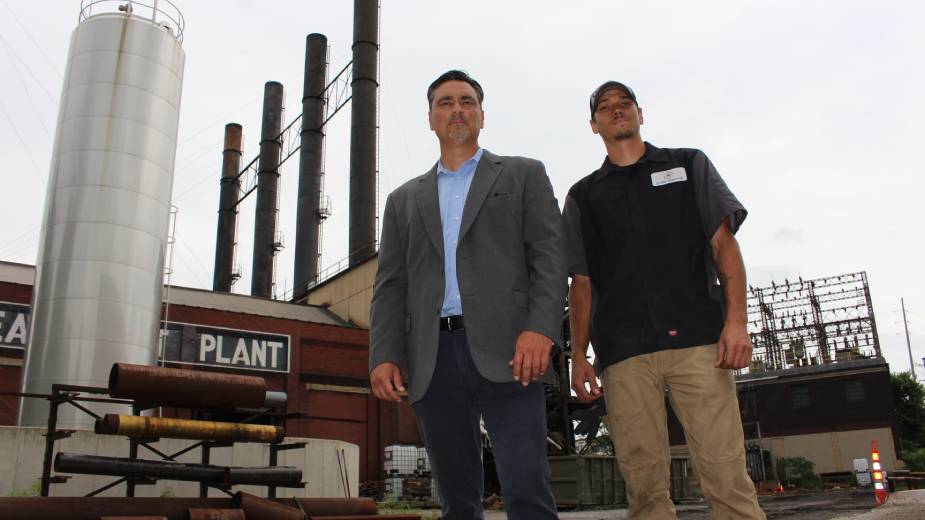YOUNGSTOWN, Ohio – Within the next few weeks, passersby along the far west end of downtown Youngstown should notice a dramatic change to the skyline.
Four large, steel steam stacks that tower above the former Youngstown Thermal plant on North Avenue are coming down, signifying a new era in how energy, heat and cooling services are delivered to downtown customers.
“It’s going to be very modern. It’s going to be a complete automation system,” David Ferro, CEO of SOBE Thermal Energy Systems, says of his plans to revitalize the plant.
SOBE, based in Dublin, Ohio, purchased Youngstown Thermal out of receivership in December 2021 after more than two years of managing its operations. The company provides district heating and cooling services to 35 customers in or near downtown.
While under SOBE management, the company repaired or replaced significant portions of the old steam pipes to stabilize its delivery network. Once the official sale was finalized, Ferro says SOBE could turn its attention to redeveloping the entire operation.
The company plans to invest $500 million “minimum” into its operations in the Mahoning Valley, he says. This includes $200 million in upgrading the Youngstown plant and another $300 million in Youngstown and Lowellville, where the company plans to build a gasification plant that would be used to produce feedstock for the North Avenue site from recycled waste such as tires.
As more customers join the system, it will require additional capacity. Ferro says the plan is to install three new boilers in a brick building that was built during the first decade of the 20th century.
Youngstown State University, for example, has agreed to join the SOBE system, Ferro notes. This alone would require the addition of another boiler.
The buildings will be outfitted with some of the most sophisticated technology in the business, Ferro says. “This is state of the art technology – everything that is being utilized in aerospace companies, your universities, and your hospitals,” he adds. “Complete automation is critical.”
Inefficient coal-fed boilers will be replaced with dual-purpose boilers. That means the boilers are able to operate on standard natural gas, but also synthetic gas that would be produced by SOBE.
“The innovation we’re bringing to the site is running on a renewable technology,” Ferro says. “Our model is to get paid to make the energy,” and remove the costs of purchasing energy to operate the system.
Ferro explains that the company plans to build a tire and plastics recycling facility in Lowellville that is able to convert this waste into reusable gas. That gas would be trucked to Youngstown to serve its boiler system.
Once SOBE’s plant is at full capacity, it is likely to employ between 20 and 30 people. Most of the work would be relegated to maintenance on the approximately seven miles of pipe in the ground that makes up the network. “There needs to be a distribution crew that’s continuously maintaining all of that,” Ferro says.
Plus, the company would be looking to staff chemical, mechanical and electrical engineers, boiler operators and traditional operating crew, he says. Another 20 employees would also be needed in Lowellville.
“We’re in negotiations to acquire land in Lowellville,” Ferro says. Development of that site would occur simultaneously with the Youngstown upgrades.
SOBE is working closely with YSU to help create a curriculum in recycling technology in which successful students could realize job opportunities with the company, Ferro says.
“We want to keep our young here, our educated here, so that we can continue to expand,” he says. “Innovation comes from innovation. There’s a lot of talent coming out of YSU and we need to keep them here.”
Pictured at top: David Ferro, CEO of SOBE Thermal Energy Systems and Joey Ferro, a SOBE employee.
